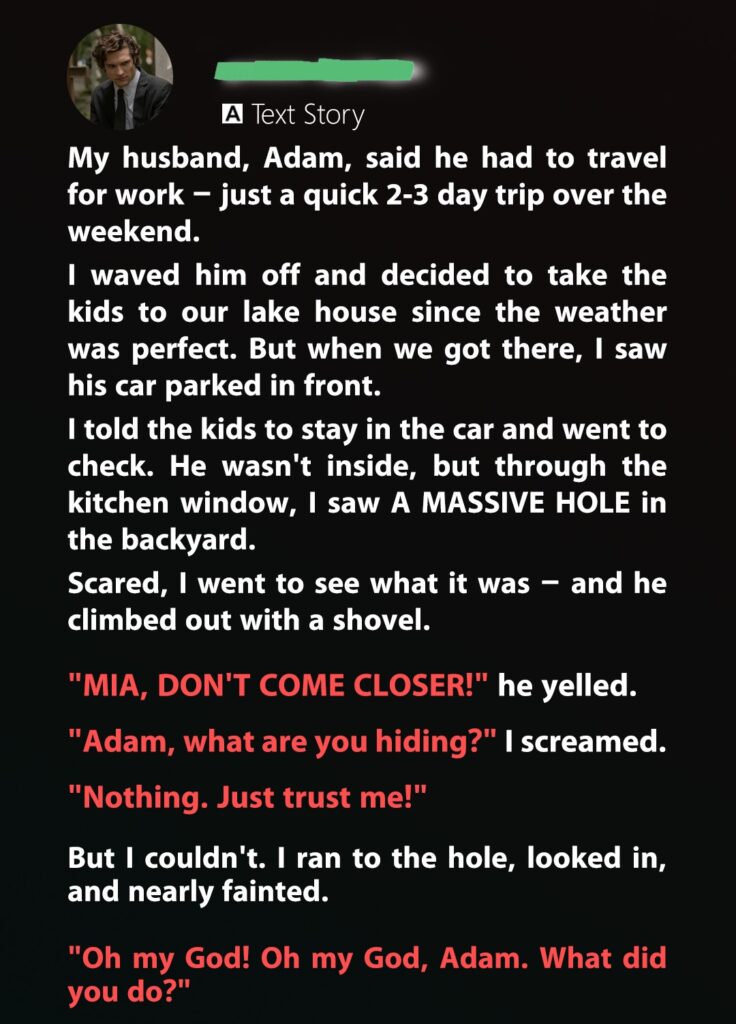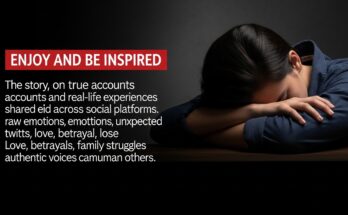Adam kissed me goodbye Friday morning, claiming he had a tech conference in Portland. I believed him. But when the kids and I spontaneously drove to our lake house the next day, his car was already there.
I told the kids to stay in the car. The house was quiet, but through the kitchen window I saw a freshly dug pit—deep, wide, and unmistakably grave-sized. I rushed outside. Adam emerged from the hole, dirt-streaked and panicked. “Mia, don’t come closer,” he warned. But I did.
Inside the pit lay bones—wrapped in cloth, yellowed with age. A skull stared back at me.
Adam swore he hadn’t killed anyone. He said the remains belonged to his great-grandfather, buried in secret by his grieving wife decades ago. His father, now in a memory-care facility, had recently whispered the truth: the man had been shunned by the town for loving the wrong woman. Denied a proper burial, his wife laid him to rest behind the lake house, where he could still see the water.
Adam had come to verify the story, hoping to give his ancestor the dignity he was denied. He found letters, photographs, and a final note from his great-grandmother: “Let them whisper. Samuel rests where he belongs.”
I was furious he lied. But as we stood over the grave, the weight of history softened my anger. We agreed to call the authorities, a historian—someone who could help us honor the truth.

From the front yard, our daughter called out. “Mommy? Daddy? Can we come out now?”
Adam squeezed my hand. “I’m sorry I scared you. I just wanted to make this right.”


